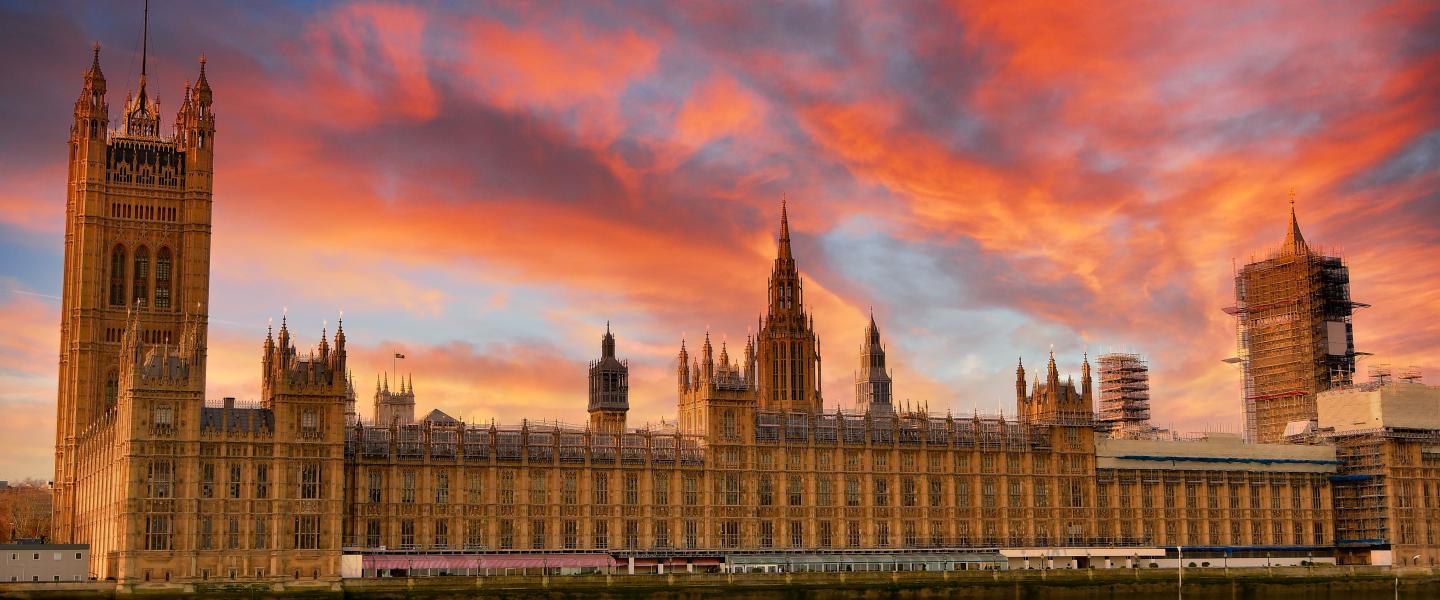Human rights at sea takes centre stage
Opinion piece by Dr. Elizabeth Mavropoulou
The UK House of Lords Select Committee on International Relations and Defence has just published its Report titled ‘The Law of the Sea in the 21st Century’, the outcome of its inquiry into the United Nations Convention on the Law of the Sea (UNCLOS). The Report builds on fifty-six oral and written evidence from leading experts around the world, academics, lawyers, the judiciary, policymakers, NGOs, unions, and government officials. It concludes with fifty-eight recommendations to the UK government.
The Report is an excellent reflection of the challenges the law of the sea faces today, including maritime security, climate change, the protection of human rights at sea, autonomous maritime vehicles, and access to economic resources. The Lords’ Report is progressive in its conclusions and recommendations to the UK government, requesting the government to respond in detail to its findings and review proposed legislation that contravenes international law. It is an example of parliamentary scrutiny and institutional accountability for compliance with international law.
There is one thematic, in particular, one challenge to the law of the sea that stands out in terms of the near unanimity of experts’ views and ultimately the Lords’ position: the primacy and the urgency of the protection of human rights at sea. The House of Lords Report comes at a moment in time when the rights of people at sea around the world are not sufficiently protected but are systematically violated. The Report does not shy away from addressing all matters underpinning the protection of people at sea; It urges, for example, the UK government to carefully reconsider whether its proposed ‘turnaround’ policy of the boats in the Nationality and Borders Bill complies with UNCLOS and human rights law obligations (paragraph 205) and exposes the commercial interests behind the so-called flags of convenience, one of the single most significant barriers to transparency as to the scale of human, labour and social rights abuses at sea. (Recommendation 36)
The Lords Report takes a clear stance and urges the UK Government to take a holistic and unified approach and lead globally in further developing and refining the law on human rights at sea. (Recommendations 40-43) As I have argued elsewhere, and as the Report confirms, the UK government must discard its narrow understanding of human rights at sea as entailing merely labour protections in UK territorial waters and onboard UK flagged vessels. If human rights are to be seriously protected at sea and if victims of human rights abuses are to have access to an effective remedy, it cannot rest on legal gymnastics, and jurisdictional gaps and deficiencies as is currently case. (Recommendation 40)
What is clear from the Report is that the law surrounding human rights protection at sea needs to be strengthened. Every single witness cited in the Report has acknowledged that UNCLOS (as any other multilateral treaty for the time being) stands no chance of being renegotiated. There are, however, ways of refining the law, such as enacting national legislation empowering the courts to hear human rights abuses occurring at sea or adopting a non-binding instrument.
Drawing from the written evidence submitted by Human Rights at Sea, the Report promotes the Geneva Declaration on Human Rights at sea as a framework that can supplement UNCLOS and strengthen human rights law compliance at sea. (paragraph 228) Conceived by our NGO as a response to the ongoing systematic abuse of human rights at sea that we have exposed and reported over the course of eight years, the Declaration, drafted by prominent academics and reviewed by leading shipping law firms, brings together existing international law applicable at sea into one single document and explains how it applies at sea. It does not ask states to undertake new obligations, but it provides practical guidance on how to ensure that human rights abuses at sea are detected, remedied, and ultimately ended.
The explicit acknowledgement of the Declaration and the work of Human Rights at Sea in the Report itself is a watershed moment for our organisation because it vindicates eight years of hard work and advocacy that human rights laws apply at sea as they do on land. It is equally an important momentum for action for the rights of people at sea. The Geneva Declaration on Human Rights at Sea, if adopted and championed by a significant maritime power like the UK, would implement all ten recommendations identified in relation to the protection of people at sea. Finally, the Report is a timely blueprint contribution to the UK’s maritime and human rights strategy. The House of Lords Report takes human rights at sea from a subject of academic study and solidifies it as a legal and policy area falling squarely within UNCLOS that requires action and leadership from the UK government. Now we must wait and see if the government will seize the opportunity to act.
NB: The views expressed in this op-ed are of the author and does not necessarily reflect the views of the charity.
